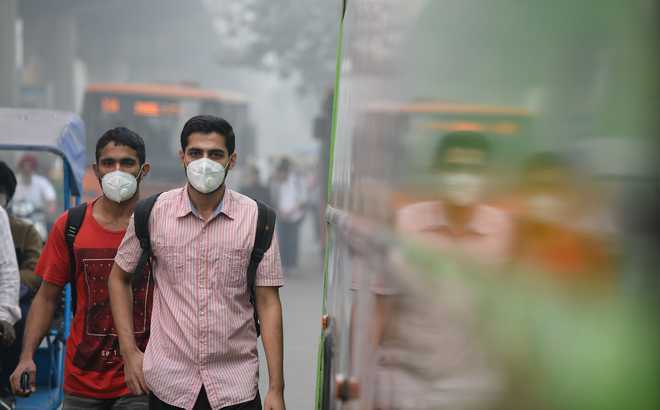LOS ANGELES: Higher levels of air pollution may increase the risk of delinquent behaviour among teenagers, a study has warned.
Tiny, toxic particles creep into developing brains, cause inflammation and may damage brain pathways responsible for emotion and decisions, researchers said.
The finding is a reminder of the importance of clean air and the need for more foliage in urban spaces, they said.
Tiny pollution particles called particulate matter 2.5 (PM2.5) – 30 times smaller than a strand of hair – are extremely harmful to health, according to Diana Younan, lead author of the study.
“These tiny, toxic particles creep into your body, affecting your lungs and your heart,” said Younan, a research associate at University of Southern California (USC) in the US.
“PM2.5 is particularly harmful to developing brains because it can damage brain structure and neural networks and, as our study suggests, influence adolescent behaviours,” she said.
The study, published in the Journal of Abnormal Child Psychology, showed that ambient air pollution increased delinquent behaviour among 9- to 18-year-olds in urban neighbourhoods in Greater Los Angeles.
The insidious effects are compounded by poor parent-child relationships and parental mental and social distress, researchers said.
The study followed 682 children in Greater Los Angeles for nine years starting when they were aged nine.
Parents completed a child-behaviour checklist every few years and noted if their child had engaged in 13 rule- breaking behaviours, including lying and cheating, truancy, stealing, vandalism, arson or substance abuse. Up to four assessments were recorded per participant.
Researchers used 25 air quality monitors to measure daily air pollution in Southern California from 2000 to 2014.
They computed each participant’s residential address and used mathematical modelling to estimate the ambient PM2.5 levels outside each home.
About 75 per cent of the participants breathed ambient air pollution that exceeded the recommended levels of 12 microgrammes per cubic metre. Some areas had nearly double the recommended amount of these particles.
The data was adjusted for gender, ethnicity, socioeconomic status, neighbourhood socioeconomic characteristics and neighbourhood quality, researchers said.
“It is widely recognised that ambient air pollution is detrimental to the respiratory and cardiovascular health of young and old alike,” said Jiu-Chiuan Chen, an associate professor at USC’s Keck School of Medicine and senior author of the study.
“But in recent years, scientists have come to acknowledge the negative impact of air pollution on human brains and behaviours,” said Chen.
Breaking News
 Driving Naari Programme launched in Chandigarh
Driving Naari Programme launched in Chandigarh Punjab farmers reaping benefits of Mann Government’s crop diversification initiatives
Punjab farmers reaping benefits of Mann Government’s crop diversification initiatives Punjab and Kerala Join Hands to Address NRI Concerns
Punjab and Kerala Join Hands to Address NRI Concerns Macron refuses French Prime Minister’s resignation after chaotic election results
Macron refuses French Prime Minister’s resignation after chaotic election results Modi lands in Russia for first visit since Ukraine offensive
Modi lands in Russia for first visit since Ukraine offensive Saudi Arabia approves granting citizenship to global experts under Vision 2030
Saudi Arabia approves granting citizenship to global experts under Vision 2030 Vigilance arrests Panchayat Secretary, former Sarpanch for embezzlement in Panchayat funds
Vigilance arrests Panchayat Secretary, former Sarpanch for embezzlement in Panchayat funds Housing crisis in Canada forcing residents to move out of pricier cities: Poll
Housing crisis in Canada forcing residents to move out of pricier cities: Poll Historic Milestone: Canada Appoints Its First Female Chief of Defense
Historic Milestone: Canada Appoints Its First Female Chief of Defense Victory parade of T20 World Cup-winning Indian cricket team concludes in Mumbai
Victory parade of T20 World Cup-winning Indian cricket team concludes in Mumbai Maximizing impact of Aadhar in Punjab
Maximizing impact of Aadhar in Punjab Amritpal Singh to take oath as Khadoor Sahib MP on July 5
Amritpal Singh to take oath as Khadoor Sahib MP on July 5




































